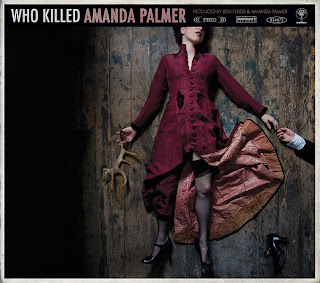THE BALLAD OF JOHN AXON (First transmitted on 2 July 1958)

The first of the Radio Ballads, The Ballad of John Axon concerns a steam-locomotive driver from Stockport, posthumously awarded the George Cross for an act of heroism in 1957 when he refused to abandon his runaway train and saved lives at the expense of his own.
When MacColl, Parker and Peggy Seeger travelled to Stockport to interview Axon's widow and workmates, it was apparent that the immediacy of their recall and richness of idiom, along with the sound effects of the locality, were far too compelling to use merely as a script for actors performing a formal musical as originally planned. A new form of radio was born to deal with this unique situation, telling the story of John Axon in song and 'actuality' - the field recordings of colleagues and family in their own environment. This marriage of the ballad form and tape recording technology was hailed in the national press as a remarkable innovation, and the response was described by Parker as "staggering".
SONG OF A ROAD (First transmitted on 5 November 1959)
After the relatively contained Ballad of John Axon, the scope of the second

radio ballad widened considerably. The construction of Britain's first motor-highway, the M1 or, as it was then known, the London-Yorkshire motorway, then stood at 57 miles of muddy road and a workforce of 19,000 men. From the simple telling of a story, the team now had a much more ambitious subject with its shadowy chronology, complex background and multitudinous tradesmen, labourers, management and administrators.
SINGING THE FISHING (First transmitted on 16 August 1960)

The third programme in the series, Singing the Fishing features the men and women of the herring fishing fleets of East Anglia and Northeast Scotland. It was based on 250 tapes of conversation with fishermen and their families, a wealth of material described by Parker as "all but overwhelming". MacColl and Seeger hit paydirt with the discovery of Sam Larner, an 80-year old ex-fisherman from Norfolk who was also a singer with a large repertoire of country songs, traditional ballads and seafaring material. Progressing from Larner's rich, sail-based memories to the reminiscences of a retired steam-drifter skipper from Great Yarmouth, they moved on to the new centre of the industry, the Scottish northeast coast where a new fleet of diesel-driven boats was built after the Second World War.
THE BIG HEWER (First transmitted on 18 August 1961)

Coalmining presented itself as a natural subject for a radio ballad since Ewan MacColl and Peggy Seeger had spent part of 1960 working as resident songwriters and music arrangers for the National Coal Board film department. The Big Hewer was the fourth in the series and named after the mythically prodigious miner of coal legend who appears by a different name in each mining locality (a similar figure with superhuman work powers, John Henry, exists in American work gang mythology).
THE BODY BLOW (First transmitted on 27 March 1962)

The Body Blow was originally conceived as an exploration of the psychology of pain, but the project eventually focused on the subject of poliomyelitis, a disease prevalent at the time. Inspired partly by the montage sequences in Alain Resnais' film, Last Year in Marienbad, the programme is a journey into the minds of five polio sufferers, two partially and three totally disabled.
ON THE EDGE (First transmitted on 13 February 1963)

The sixth Radio Ballad, On the Edge, deals with young people on the cusp of childhood and adulthood. The youngsters embraced the field recording techniques now perfected by the team and, contrary to expectations that young people would refuse to talk freely about their hopes and fears to adults, held nothing back. MacColl noted that "the problem was not to get them talking, but to stop them."
THE FIGHT GAME (First transmitted on 3 July 1963)
The Fight Game was the seventh radio ballad and tackled the world of the professional boxer. It proved to be not the lighthearted escape "from the huge canvas of industry and the intensely private world of the sick and the adolescent" that the team had expected, but an ironic allegory in which the world of prizefighting represented the larger world in which we all live. Sixty hours of interviews were taped in gymnasia above London pubs, boxing rings, dressing rooms and on the streets in early-morning training sessions. The regular references by the fighters to themselves as latter-day gladiators prompted Peggy Seeger to score the music for brass, the trumpets and trombones reminiscent of Roman circuses and matching perfectly the sudden and brutal violence of the ring.
THE TRAVELLING PEOPLE (First transmitted on 17 April 1964)
 The final radio ballad took as its subject the gypsy and tinker population of Britain. The bulk of the recording fell to MacColl and Seeger, who were already familiar with traveller families from earlier collecting sessions. They spent almost a month in tents, kitchens and caravans, at horse fairs and around campfires in Glasgow, Blairgowrie, Montrose and Aberdeen, Norfolk, Suffolk, Cambridgeshire, Birmingham, London, Hampshire and Dorset. The travellers were natural subjects with their rich folk life, songs, legends and inborn gift for storytelling; they were also a fascinating social study, maintaining fierce pride and independence in the face of constant hostility and persecution.
The final radio ballad took as its subject the gypsy and tinker population of Britain. The bulk of the recording fell to MacColl and Seeger, who were already familiar with traveller families from earlier collecting sessions. They spent almost a month in tents, kitchens and caravans, at horse fairs and around campfires in Glasgow, Blairgowrie, Montrose and Aberdeen, Norfolk, Suffolk, Cambridgeshire, Birmingham, London, Hampshire and Dorset. The travellers were natural subjects with their rich folk life, songs, legends and inborn gift for storytelling; they were also a fascinating social study, maintaining fierce pride and independence in the face of constant hostility and persecution.
Taken from http://www.bbc.co.uk/radio2/radioballads/original/index.shtml







































